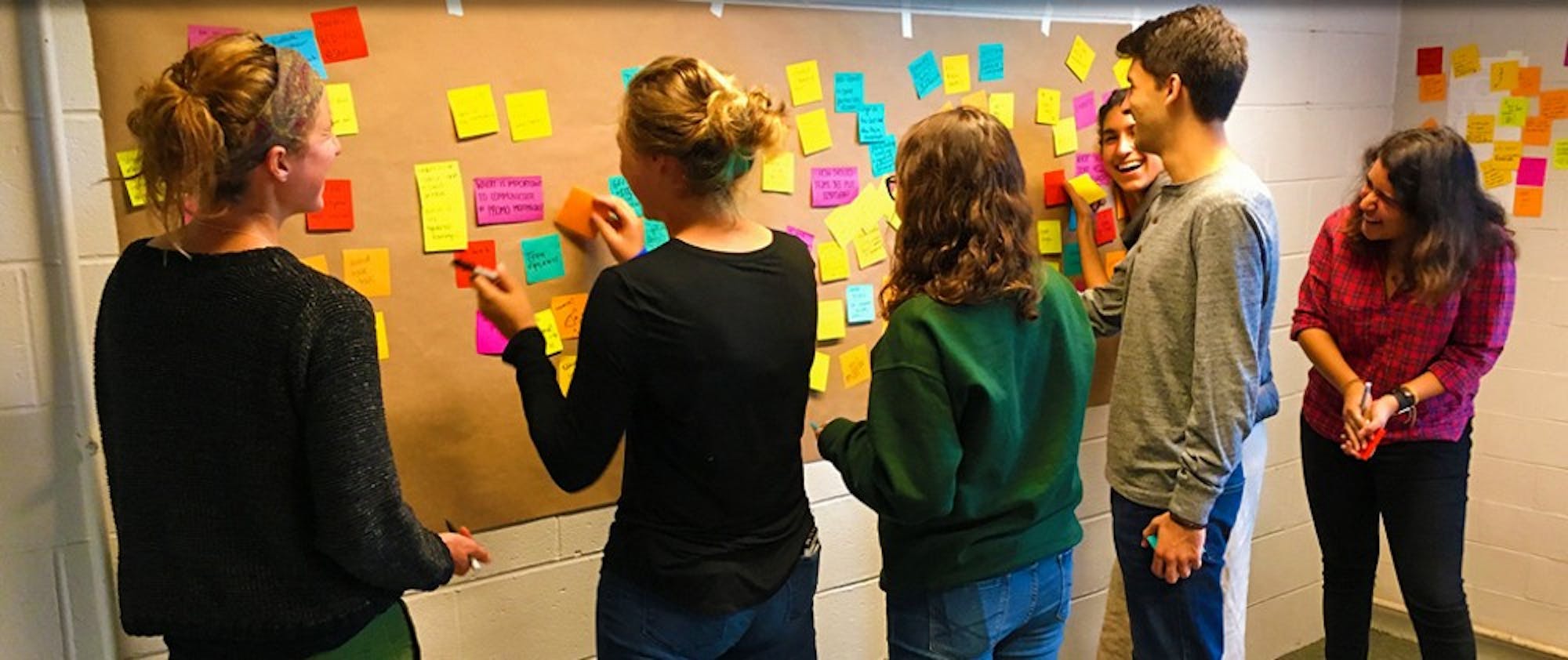This Tuesday, the application for the new course Engineering Sciences 15, “Senior Design Challenge” went live on its website. Taught by design thinking lecturer Eugene Korsunskiy, “Senior Design Challenge” is a two-term capstone course available to seniors this winter and spring. With an expected class of 20 seniors, the course will sort students from a variety of academic backgrounds into interdisciplinary teams to design solutions to real-world challenges, Korsunskiy said.
“Senior Design Challenge” is one of seven projects that were awarded one-year pilot funding for this academic year through a Dartmouth Center for the Advancement of Learning’s experiential learning seed grant. Since fall 2015, DCAL has sponsored over 30 experiential learning programs. This year, it received project submissions from 20 divisions and departments at the College.
Thayer project developer Ashley Manning ’17 said she first proposed the idea for the course in a group project for Engineering Sciences 12, “Design Thinking,” which she took last winter.
“For part of the project, my group members and I interviewed students across campus and asked them what their most meaningful learning experiences have been here at Dartmouth,” Manning said. “There are certain recurring topics that constantly come up, like when your work involves an outside organization, when you’re passionate about what you’re doing, when you’re interested in the topic.”
Manning said she drew on these responses and her own learning experiences at the College to form the foundation of “Senior Design Challenge.” Whether it be an app, service, experience or any other culminating product, students must design something that is implementable in the real world, Manning added.
According to Korsunskiy, students enrolled in “Senior Design Challenge” might choose to focus on health care, education, transportation or sustainability issues, and most students will likely collaborate with relevant organizations in the Upper Valley.
“The question is, ‘How do you find some human need that is not yet met by existing solutions out there in the world, and how do you come up with a better way to meet that need?’” he said.
Manning and engineering professor Peter Robbie, who taught Manning in ENGS 12, said they worked together last spring to receive the grant for “Senior Design Challenge.” After they were awarded one-year pilot funding, Robbie asked Korsunskiy to teach the class, Korsunskiy said.
Korsunskiy said he plans to use his experience at Stanford University’s d.school — the university’s design thinking institute — to help students in “Senior Design Challenge” hone their skills in primary user research, information analysis and interviewing. Before coming to Dartmouth, Korsunskiy studied then lectured on design thinking at Stanford and then served as senior coordinator of design initiatives at the University of Vermont for three years.
“I’m not there to teach any content about the projects,” Korsunskiy said. “I see my role as the process-facilitator. I am there to help the students figure out how they themselves can design their way through the challenges they’re working on. I’m there to help them become better teammates, and I’m there to help them articulate the kinds of skills they’re learning.”
One of the course’s distinctive characteristics is its interdisciplinary nature, Robbie said. He noted that seniors majoring in any department can apply, believing the combined expertise of academically diverse students will produce promising results.
“We want to leverage multidisciplinary skills and bring students from all different departments together,” Robbie said. “The easy problems have been solved. This class is a model of the future — it’s for students who really want to put their knowledge to work.”
According to Manning, “Senior Design Challenge” will provide a sense of closure for seniors at the College. By applying knowledge and critical thinking to a field, collaborating with an external partner and producing well-developed solutions, students will change how they conceptualize the purpose of learning, Manning said.
“This course really gives an opportunity to apply so much of what a liberal arts education entails on the field, and I think that is what makes it exciting,” Manning said. “You get closure, but you also get to build a bridge in terms of understanding how you move the classroom learning into the real world.”
Korsunskiy, Manning and Robbie said there are no prerequisites for the course, although experience in ENGS 12 or other human-centered design experience may be helpful.
Maria is a freshman from Oak Brook, IL. Maria plans to major in Cognitive Science and minor in Computer Science, and she joined The D because she wants to bring attention to current events on campus. In her free time, she enjoys golfing, learning about new cultures, and playing with her two puppies.




